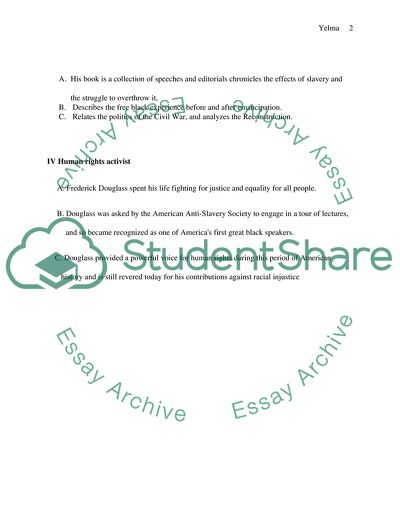Cite this document
(Frederic Douglass Article Example | Topics and Well Written Essays - 1250 words, n.d.)
Frederic Douglass Article Example | Topics and Well Written Essays - 1250 words. https://studentshare.org/english/1776342-frederic-douglass
Frederic Douglass Article Example | Topics and Well Written Essays - 1250 words. https://studentshare.org/english/1776342-frederic-douglass
(Frederic Douglass Article Example | Topics and Well Written Essays - 1250 Words)
Frederic Douglass Article Example | Topics and Well Written Essays - 1250 Words. https://studentshare.org/english/1776342-frederic-douglass.
Frederic Douglass Article Example | Topics and Well Written Essays - 1250 Words. https://studentshare.org/english/1776342-frederic-douglass.
“Frederic Douglass Article Example | Topics and Well Written Essays - 1250 Words”. https://studentshare.org/english/1776342-frederic-douglass.


